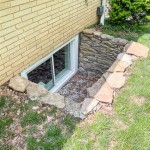Do You Need A Dehumidifier In Your Basement This Winter?
Are you preparing your home for the cold winter weather? If you have a basement, a dehumidifier could be an essential tool to keep it comfortable and free from moisture damage. Here are some factors to consider when deciding whether or not you need a dehumidifier in your basement during winter.
Moisture
Basement are prone to moisture, especially during winter when the warm, moist air from the house rises to the cooler space and condenses. Excess moisture can create a damp, musty environment that is ideal for mold and mildew growth, which can damage your belongings, cause health issues, and compromise the structural integrity of your home.
Signs of Excess Moisture
Several signs indicate you may have excess moisture in your basement during winter:
- Musty or earthy odors
- Visible mold or mildew growth
- Condensation on windows or walls
- Dampness or wetness to the touch
- Rusting or corrosion on metal objects
- Wood rot or decay
Benefits of Dehumidifiers
Dehumidifiers remove excess moisture from the air, preventing condensation and moisture-related problems. They offer several benefits in basements during winter:
- Reduced mold and mildew growth
- Improved air quality
- Increased comfort and warmth
- Protection against structural damage
- Reduced musty odors
Choosing A Dehumidifier
If you determine a dehumidifier is right for your basement, consider the following factors when choosing one:
- Capacity: Measure the square footage of your basement to determine the appropriate capacity.
- Energy Efficiency: Look for Energy Star-rated models to save money on energy costs
- Noise Level: Choose a model with a low decibel rating for quiet operation
- Features: Consider features such as automatic shut-off, adjustable humidity settings, and a built-in hygrostat.
Alternatives To Dehumidifiers
If you are not ready to invest in a dehumidifier, there are alternative methods to reduce moisture in your basement:
- Ventilation: Improve air circulation by opening windows or using fans.
- Moisture Barriers: Install vapor barriers on walls and floors to prevent moisture penetration.
- Basement Insulation: Insulating your basement walls and ceiling can reduce condensation.
- Proper Drainage: Ensure proper drainage around your home to prevent water seepage
Conclusion
If you experience excessive moisture in your basement during winter and are concerned about potential damage or health issues, a dehumidifier can be a valuable investment. By removing excess moisture, a dehumidifier can improve the comfort, healthfulness, and longevity of your basement.
Remember to consider factors such as moisture levels, signs of excess moisture, and your budget when making a decision. If alternative methods are more suitable for your situation, explore those options to reduce humidity and protect your basement.

Why You Should Run A Dehumidifier In Your Basement During Winter

Humidifier Or Dehumidifier For Winter Robert Bair

Should I Run A Dehumidifier In My Basement The Winter Hunker

Should I Run A Dehumidifier In My Basement The Winter Hunker

Reasons To Have A Dehumidifier In Your Basement Integrity

Dehumidifier For Basement In Winter Is It A Good Idea

Should I Turn Off My Crawl Space Dehumidifier In Winter

Should I Run A Dehumidifier In My Basement The Winter Hunker

Why Your Basement Needs A Dehumidifier

Do I Need To Run My Dehumidifier In The Winter
See Also








